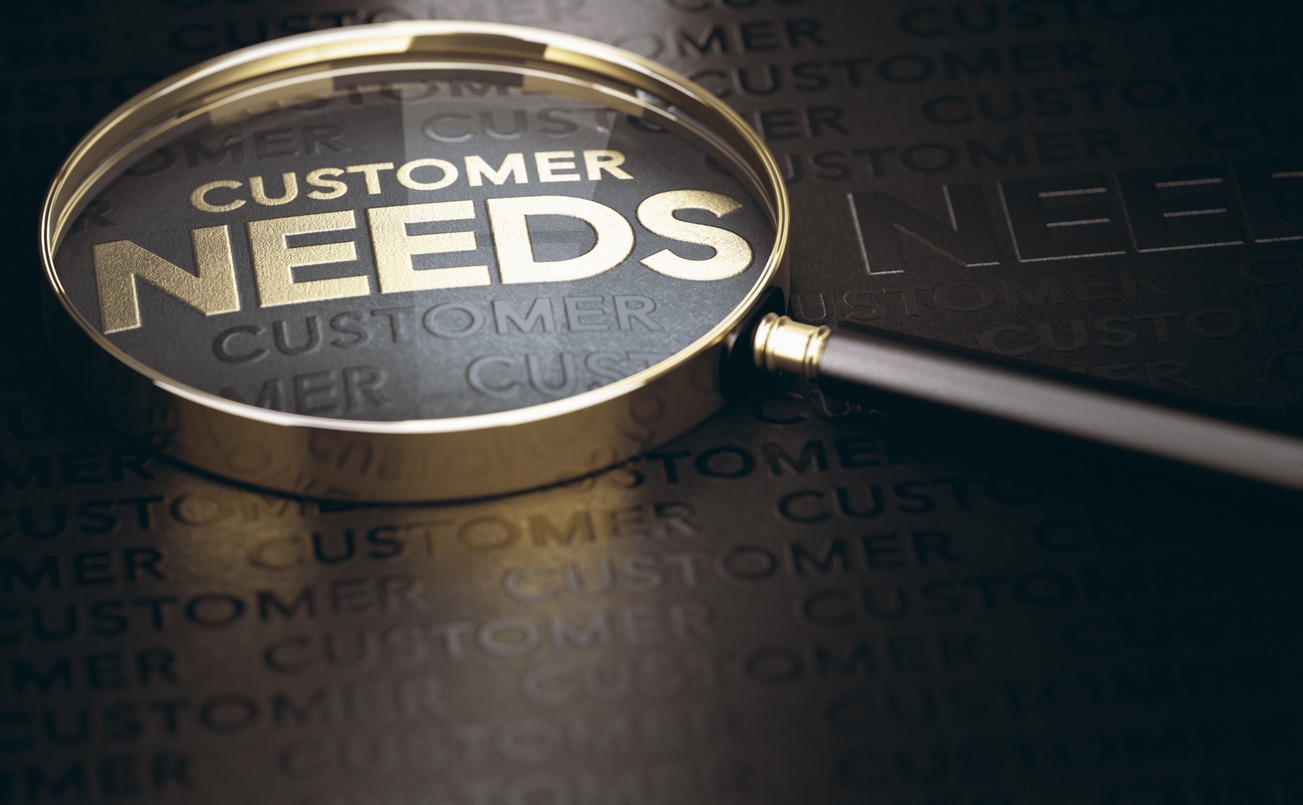White labeling in the SaaS industry refers to buying generic/unbranded software and reselling it under a different brand name. The concept really took off in the last decade, thanks to constant advancements in the field of cloud computing. It can be done in different ways, including reselling through third-party retailers, modifying the software and adding value to it, or developing new solutions using development kits. White labeling has become a popular concept in the SaaS industry as it enables businesses to add value on top of existing software and gives customers more options to choose from.
How White Labeling Works?
SaaS software providers develop customizable software solutions designed to meet specific business needs. The reselling company buys and rebrands these solutions, markets and resells the software under a different identity. More often than not, it’s hard for customers to guess where white-labeled software actually originated from. The types of businesses that can use and benefit the most from white label software are agencies/resellers and businesses/entrepreneurs that need to fulfill a specific requirement.
Agencies/Resellers
Agencies or resellers that already have a customer base are the primary market for white label software. They already have sales and customer services units, but not the technical skills and underlying infrastructure to develop software. They can buy pre-built software, add branding, improve the user experience and add or customize features to make their product attractive.
White labeling can also be used to fulfill a specific need. For example, if you are running an email marketing company and your clients are asking to add SMS functionality, you can white label the SMS service without having to build it yourself.
Business/Individuals with a Specific Need
Suppose you own a restaurant and are looking for an app that allows your customers to place orders online. You can either hire developers to build you an app from scratch or buy an existing app that can be rebranded as your own. The second option is going to be more cost effective and less time-consuming, but will limit you in terms of making changes at a granular level.
Benefits of White Label SaaS
Benefits of White Labeling for Software Developers
White labeling gives software developers expanded markets reach and access to new markets. Although resellers brand the software under their own identity, it reaches a wider audience and new markets, increasing its potential customer base. White labeling provides additional revenue opportunities for software developers. It also reduces cost and time by sharing maintenance responsibilities with the reselling companies.
Branding is not always completely removed by the reseller and can be subtly incorporated, giving the developer recognition and brand exposure. White labeling is not just about selling software and just forgetting about it. User feedback from the reseller provides developers with valuable feedback, which can be used to improve products and refine the user experience.
Benefits of White Labeling for Resellers
The benefits for resellers are quite obvious and include better brand presence, brand loyalty, and cost and time savings. White labeling helps resellers focus on their core competencies such as sales, marketing and customer support. They don’t have to start from scratch and invest heavily in the underlying infrastructure and development work. White labeling is a great way to differentiate from the competition by providing customized solutions that meet specific needs of the customer base. You can read more about starting a white-label SaaS business in the linked post.
Some other key benefits of white labeling for resellers include faster time-to-market, more revenue generation opportunities, and integrated and comprehensive experiences resulting in enhanced customer engagement.
Benefits of White Labeling for Customers
White labeling is potentially a win-win for all the parties involved. Customers or end users get solutions that are tailored to their specific needs at a reasonable price. White labeled solutions usually undergo usability refinement and new features are added on top of the core software, including customized user interface. This helps streamline workflows and makes the software easy to use. When using white labeled solutions, the reseller is the single point of contact for customers to get support, updates and training, simplifying the customer experience.
White Labeling vs. Private Labeling
Although sometimes used interchangeably, there is a difference between the two. Private labeling is common among big retailers and is generally associated with physical goods. Manufacturers of private label goods sell their products exclusively to a retailer who defines the product, its design and controls how the product is manufactured. In order to make the product unique, private labeling is done under a contract, which usually prohibits the manufacturer from selling the same product to other retailers. Trademarks, branding, identity and other intellectual rights are owned by the retailer/seller.
White labeling is a concept generally associated with selling intangible goods such as software. In the SaaS world, it refers to resellers buying a software/solution from the vendor and then reselling it after rebranding or adding more value. The white labeling company buys generic software and adds value by creating its own unique variations in the software.
Types of White Labeled Solutions
From food delivery apps to website builders and marketing tools, white label software is everywhere. And it’s not just resellers that can benefit from selling white labeled software. Customers/SMBs can also buy unbranded software and rebrand it to reflect their own brand identity. There are many types and categories of white label software with the most popular being the following.
White Label Software Apps
These are the apps rebranded and/or customized by resellers and include apps such as CRMs, project management solutions and collaboration software. Resellers can tailor these apps to align with the specific requirements of its customers by customizing features, user interface and other key elements.
White Label Mobile Apps
Mobile apps have become an integral part of our daily lives and allow users to access information from anywhere using their mobile devices. Resellers can rebrand and customize mobile apps to align with the needs of their target audience, while SMBs can also buy generic apps and apply their own branding on top for a consistent customer experience.
White Label Web Services
Web services including file sharing, cloud storage, communication, and video conferencing can be white labeled by incorporating brand elements. The same can be done by businesses that can buy a ready-made product and rebrand the interface to make it their own.
White Label Devices and Bundles
White label devices help businesses extend beyond software and apps and include IoT devices, tablets and smartphones. Businesses can rebrand these devices with their own logos and use white labeled software and other branding elements to offer a fully branded software-hardware solution to their customers.
White Label Payment Processing Solutions
Most SMBs don’t have the technical and financial resources to set up their own payment processing solution. But they can take advantage of white label payment processing solutions that include virtual terminals, payment gateways and POS systems. This enables them to offer a seamless payment experience without having to deal with the underlying payment infrastructure.
White Label Media and Content Management Platforms
Platforms including CMS (Content Management System), e-learning platforms, video platforms and other media distribution platforms can also be white labeled according to specific customer requirements. These requirements may include integration capabilities, customized and easy to use user interface, and additional features and plugins.
White Label Infrastructure and Hosting Services
White labeled hosting services are common in today’s online world. Infrastructure and hosting services include branded managed server solutions, cloud infrastructure and web hosting.
Things to Consider when Buying White Label Software
Research Customer Needs
A thorough research and understanding of the needs of the target market is essential in selecting the right solution to white label. The solution should align well with their requirements and preferences. A thorough market research and evaluation of evolving customer needs and market dynamics allows resellers to adapt a solution accordingly and offer better value for the money.
Pick the Right Provider
Choosing the right solution provider can be a big challenge in an online landscape where thousands of small companies are offering a similar solution. Resellers and businesses need to evaluate the reputation, track record, development roadmap and support services of different providers to pick the right option. The provider should align well with business objectives and should provide top notch support, regular updates and maintain the quality of its services.
Balance Customization and Standardization
Resellers have to strike the right balance between customization and standardization. Too much customization can increase costs and compatibility issues, while too little means the customers are just getting the same product with a different logo. SMBs buying a white label solution also need to evaluate how much customization a provider allows and if it supports essential customization, including branding options.
Competition and Brand Differentiation
More often than not, there are multiple companies reselling the same white label software with the same features and user interface, which makes it difficult to differentiate a brand from the competition. Resellers have to find ways to create brand differentiation such as adding unique features, making the user interface more intuitive, offering specialized or dedicated customer support, and offering value-added services. A white label solutions provider should be committed to ongoing development, regular updates and fixes, and product enhancement in order for your white label solution to stay competitive.
Support and Training
Resellers have to offer stellar customer support to their customers to stay competitive. Setting up and maintaining mechanisms to ensure timely and responsive support, online resources and comprehensive training can be challenging, especially for small businesses. Consider the level of documentation, support and training being offered by the provider when evaluating different providers.
Ownership and Intellectual Property Concerns
Resellers need to carefully analyze and review usage and ownership rights, any restrictions that might have been imposed by the developer, ownership of the software and intellectual property rights. Having clarity about these can help avoid potential legal issues and protect the interests of resellers/businesses that resell/use the software.
Scalability, Flexibility and Integration
Resellers and business users need to make sure that the solution they are purchasing can scale as their customers grow and can deal with seasonal spikes. They need to consider the growth potential and scalability of the provider to evaluate if the software can accommodate additional features, high data volume and increased user demand without any disruptions. High compatibility with other solutions, infrastructures, data formats and APIs is another important factor to consider, which extends functionality and helps differentiate the product from the competition.
Focus on Long-term Partnership
White labeling is not just about buying and rebranding a solution. The process involves a long-term partnership and alignment of goals with the provider. The provider should be stable and committed to ongoing support, product development and enhancement, and establishing a long-term partnership to meet business goals. Consider the reputation and track record and its history of delivering high-quality solutions by reading reviews, seeking recommendations and conducting thorough research.
Security and Compliance
Security and compliance should be a priority when picking a white label solution provider. There are many industry-specific compliance and security standards in place that help evaluate if a provider is worth considering or not. Consider data protection protocols, compliance certifications, encryption standards, industry-specific compliance requirements such as HIPAA and GDPR, and other security measures in place to gauge how well a provider is equipped to ensure security and compliance.
Licensing Terms and Pricing
The provider should be transparent and clear about its pricing and licensing terms, making it easier to understand the pricing structure and whether it aligns with your target market. Resellers need to take all costs and other factors into account to ensure they are securing the right deal. These costs include upfront costs, volume-based pricing, recurring fees and revenue sharing agreements. Although pricing should be competitive and is an important factor to consider, it should not be the only deciding factor, and other aspects should also be taken into account.
Conclusion
Controversy still surrounds white labeling and whether it’s ethical to sell someone else’s software just by putting your own label onto it. But it usually happens between small businesses that don’t have access to large tech companies. White labeling gives them the opportunity to add value and provide a better user experience instead of spending all their energy and time on building everything from scratch. It works great for companies that are good at marketing and already have a loyal customer base, but lack the technical expertise to build a solution on their own.



